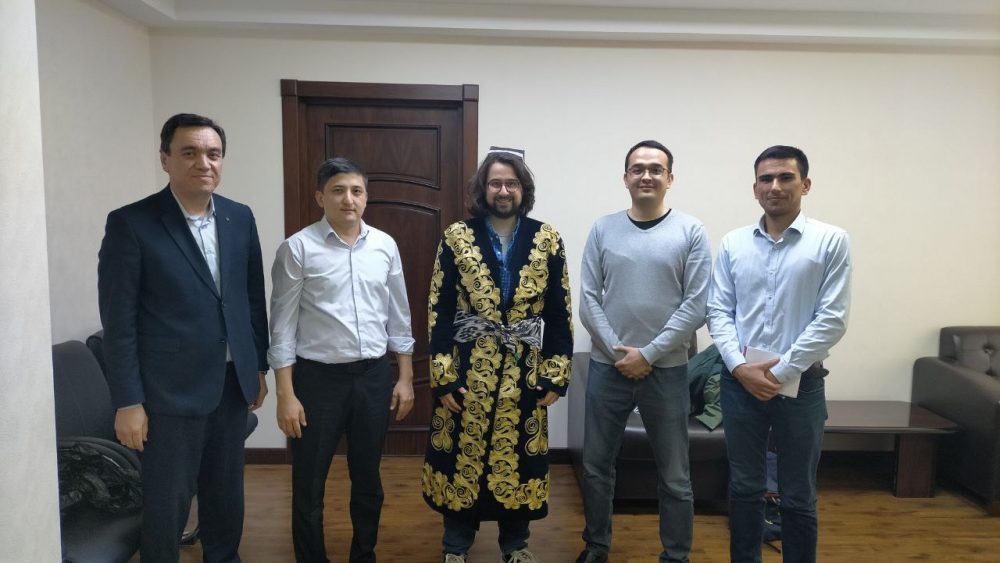By Carlo Nicoli Aldini
It’s 2:00 a.m., I’m at Tashkent Airport, sitting at the gate and waiting to board my night flight to Istanbul, whence I will take off for the final destination, my hometown Bologna. Uzbekistan says farewell to me in a way that fantastically synthesize my experience in this country: around me, very few people, if any, are wearing a mask. Living as we are in pandemic times, it is easy to conclude that this behavior is wrong, irresponsible, shortsighted, you name it. But in my near-four-month time in Tashkent and its surroundings, I have come to understand that one would hardly comprehend Uzbekistan using our (i.e., Western) common cultural schemas and points of reference. If our viewpoint is the rule-of-law as a moral measure of rightness, then the people around me are simply wrong, and their behavior is patently illegal. But then an obvious question kicks in: how is it possible that an entire terminal is basically mask-less, and that is still okay? And by possible, I mean legally and socially possible. Legally, because a law surrounding the obligation to wear masks does exist in Uzbekistan (and surely it applies in an airport terminal), but no public officials seem to be willing to enforce it, thus making this behavior legally possible. Socially, because nobody here reprimands others. Some do wear a mask, most don’t, and that seems to be okay. There’s no social sanction for this behavior. So again, how can we make sense of this? To me, this is a blatant example of legal pluralism happening in front of me. To not wear a mask is a cultural behavior that instantiates normative codes that are unofficial, but whose normative force is way stronger than state law’s normativity. I don’t know what these normative codes include specifically (some hypos: “masks are useless”, “we are in this together”, “the state is evil”, “state law is inefficient”, “state law is not in our interest”, “in the mahalla we don’t wear masks” and/or many more others…fieldwork needed!), but it seems to me obvious that they radically trump the existing official rule on the obligation to wear masks. Moreover, it is worthy to point out that one starts to comprehend these cultural codes only if the judgment over their legality/illegality is suspended. To rapidly dismiss these behaviors as illegal, in fact, prevents one from investigating what they truly mean and represent for these people. Furthermore, from the analytical point of legal pluralism, it is also technically incorrect to label these behaviors as illegal. True, they might be illegal from the viewpoint of state law but (and, in my opinion, very likely) they can still be fully legal for other normative codes existing in the Uzbek society.
This is the biggest takeaway that I take aboard with me: Uzbekistan has pushed me to try and suspend my judgments. Frequently, this effort was not easy. But anytime I managed to move beyond the surface and get over some immediate feelings of frustrations, that’s when Uzbek society has appeared to me in its complexity and charm. As one who intends to keep working and researching in the field of sociology of law, I think that Uzbekistan has showed me in real terms one of the cornerstones of any course on research ethics and methodology: to strive to set aside where you come from, so that you can try to immerse the fullest in your fieldwork environment.
Rahmat sizga, O’zbekiston! Большое спасибо, Узбекистан!

